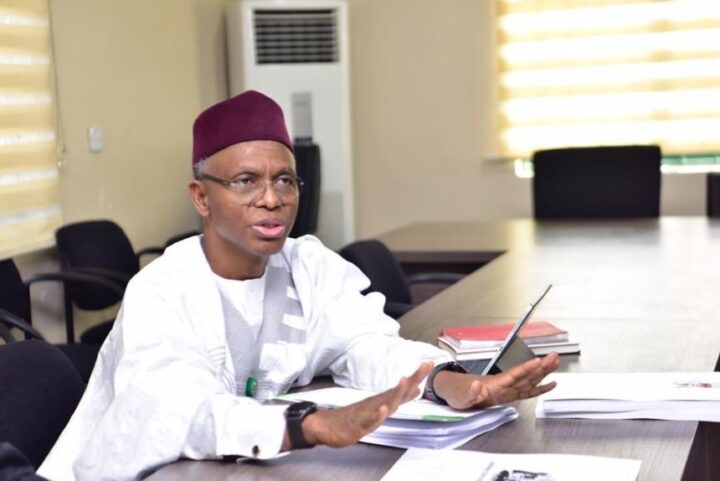Information, intelligence, knowledge, idea, or any bit of fact designed to make a recipient or group of recipients better is always helpful, not just in building understanding, but in the shaping of a being, or a community of people. It is like the cartilage that lubricates the joints of systems and societies. Information is feeding, supportive and helpful to the mind, towards confidence, and productivity. It is a tangible, intangible required to build trust, compatibility, and for the consolidation of unions, institutions, organisations, and cultures.
It may however tempt us to imagine that the sort of information we are talking about as the positive. It should not matter, really. Information might as well be negative, or unpleasant. Some of them are still worthy of dissemination, regardless. Reason being that from the bad, or the unpleasant, you can also shape the positive, through a systematic processing, consistent with man’s innate desire for improvement, all things being equal.
The absence of information, or an obstruction of a descent flow of information is a recipe for confusion, disorder, and even chaos. While the family institution needs information for continuous bonding, the secular institution requires it to build norms, foster predictability, and order, aside from helping in enhancing intelligence, often required for ideation and growth. Information is an oxygen to steady and sustain a system, a value-adding element that diminishes, or eliminates ignorance, misunderstanding, or misrepresentation.
Information is essentially priceless, therefore. Having said that, can information move, or fly on its own? Not really! We typically disseminate information through persons, institutions, and organisations. It is shaped via these elements, consistent with motives, agenda, and can be reshaped through feedbacks, for further views and reviews. Development possibly comes within that matrix, subject to mindset and management. I dare say as well, that the content, context, or quality of information is a function of agents and agencies transmitting, diffusing, or disseminating it.
Advertisement
Quality is enhanced in a process of institutional growth and stimulated with increased sophistication of the institutions. It is the reason we imagine the dynamics of information dissemination as complex, and the more reason we also have to be focused on strengthening institutions for enhanced information flow, and for the information to be value adding in social evolution. But what are institutions? And how do we strengthen them, before helping to start productive and efficient information flow?
Not a few reasoners have attempted to construct and deconstruct the concept, whether in its abstract or actual formats, from its notion as group habit, or conventions, norms and set rules, to regulatory frameworks; and to shared patterns and particularities in a system or society. Central to the understandings is that institutions are outlines for moving systems. They are modes and mores of steadying the ship of groups and communities and are crucial for government and good governance.
They are the bedrock for improvements, the pedestal for stepping onto a next stage, and the platform for the sustenance of same. Institutions should be identifiable, easily appreciable, and are sustained by structures and organisations, ideally in a path of progress. Institutions are priceless and are critical in the dissemination of value adding information.
Advertisement
I have harped on value adding in qualifying information, because information is also contextual, with the avalanche, presently at humanity’s disposal and the increasing possibility of manipulation by a conflation of state, and non-state agents, for multiple, and ever emerging reasons.
Our overarching focus is however on information as a public good, through the prism of strengthening institutions for improved information dissemination. In this context, we are talking about value-adding public service information, useful for the people, and catalytic to progress. The onus here lies with the authorities, whether governmental, or non-governmental, or public or private.
In growing institutions to add value, therefore, we first must imagine an administrative, or political will, imbued with a vision, and mission for change. This is the psychological angle to the discussion, considering the power of individual and collective conviction in achieving goals and objectives. Second is the importance of tactics and strategy, and the commitment to follow it through, as against a one-off attention to it. A conscious or unconscious outline of tactics and strategy is a guide to a destination, from the small to the bigger picture of affairs.
Third is the importance of communication, which is the creation of awareness on bonding, the need to appreciate difference, by not downplaying otherness. Communication goes beyond simple information to the steering of understanding, mutual belief, and a shared sense of intimacy. Fourth is to prioritise the strength in the community, the place of spread, and how to harness the benefit of size. In evidence here is the fact of diversity, usually featuring in groupings, and the importance of understanding the occasional challenges in nurturing commonalities.
Advertisement
Fifth is understanding the value of knowledge, which comes after information, and its relevance to the welfare of the people. Knowledge is liberating, largely in form and substance, and is often a good ground for human capacity development, for self and communal fulfilment, and for increasing social effectiveness, through the triggering of economic multipliers. The starting point of all that is however information, both on relevant institutions, or through institutions.
Sixth is to have a concern for capacity building, including administrative, and organisational, and actively. Building human capacity is important in the light of changing realities of existence, combined with growing innovations, evening up to a need for adaptation through skills enhancement. Seventh is a commitment to accountability and transparency. This is consistent with the quest for an increasingly open society, devoid of circumventions, corruption, and greed. Added to this are the shortcomings of creed, bigotry, ethnicism, and nepotism.
And eight is the need to grow an assessment mechanism, with a focus on performance. The mechanism should help reflection and reflextions, to situate gains and losses, within the short, medium, or long-term basis, and to spot the weaknesses and strengths between and betwixt the parameters. While this is not exhaustive, I reckon they are extensive enough as suggestions to grow institutions, for the promotion of value adding information towards the good of the public, and as envisaged in this year’s World Press Freedom Day. Very many thanks for your most kind attention.
Adeniyi, who teaches mass communication at Baze University, Abuja, presented this from the Nigeria side, at the multilateral seminar on this year’s World Press Freedom Day organised by the UNESCO, in partnership with the US Embassy, and other groups, May 4, 2021.
Advertisement
Views expressed by contributors are strictly personal and not of TheCable.
Add a comment







